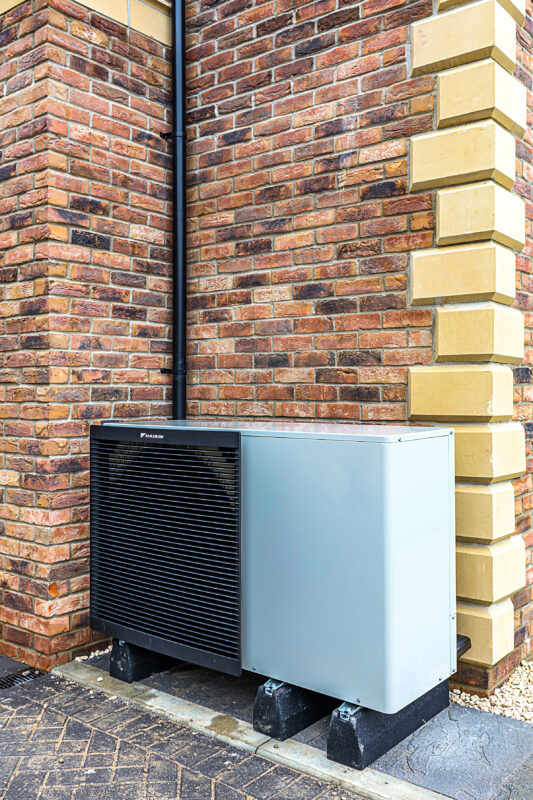Research by EDF Energy UK has revealed that almost 50% of British homeowners are considering switching to heat pumps.
Alongside this, 54% of participants said they would be inclined to switch to a heat pump within the next two years with a further 79% stating they would consider it within the next five years.
But despite this appetite for switch to low-carbon heating, the costs associated with installing a heat pump continues to be a barrier with 45% stating that the initial cost of the installation is the main deterrent.
Although, Barclays published a recent survey which signaled that many people overestimate the costs.
A lack of knowledge is another barrier with a quarter (23%) stating that they do not know what heat pumps are or how they work.
EDF also revealed that the potential to save money on energy bills was one of the biggest drivers behind the switch away from gas boilers with 25% of participants selecting this option. This was followed by reducing their carbon footprint (17%) and an understanding that heat pumps are more efficient than gas boilers (16%).
Despite these figures above, people do recognise the potential savings that could be made via the switch to heat pumps with 88% acknowledging its potential.
For its research, EDF surveyed 2,000 homeowners across the UK with a total household income of £40,000 or more.
Philippe Commaret, managing director for customers at EDF, said: “We’re on a mission to help everyone save cash and carbon so it’s great to see more people considering heat pumps and a move away from inefficient, fossil fuel heating. However, we recognise many barriers remain.
“While many people remain worried about the climate crisis, people are struggling to find the headspace, time and money to make it a priority. We want all our offers to be good for the planet and the pocket, so are taking action to make choosing a quality heat pump install easy and more affordable.”
Consumer are likely to be more inclined to consider the switch to low-carbon technologies as there seems little respite from unprecedentedly high energy prices.
Although suppliers such as E.ON Next are beginning to re-introduce competitive energy tariffs, hinting at the begin of a return to pre-energy crisis price levels, new research by Cornwall Insight has suggested that households are unlikely to benefit from these fixed energy tariffs over the coming year.
The organisation said that four fixed tariffs are currently priced below the £2,074 per year typical consumer Default Tariff Cap, with Utility Warehouse’s Fixed Saver being the cheapest at £1,974 per year. This is despite positivity in the market with the fall of energy prices in comparison to last year.
Commenting on this, James Mabey, analyst at Cornwall Insight, said: “The return of energy fixing has captured the attention of the country over the past few months, as many households seek to secure lower and more stable energy deals. Based on our current forecasts, customers are unlikely to lose out by taking a one-year fixed deal, however, it is doubtful these deals will result in significant savings, if any at all.
“While there are currently limited financial gains to be made from taking up domestic fixed tariffs, they offer a sense of security to consumers amidst the recent volatility observed in the energy market. The desire for stable prices among households may increase the number of people who sign-up for the fixed deals.”





